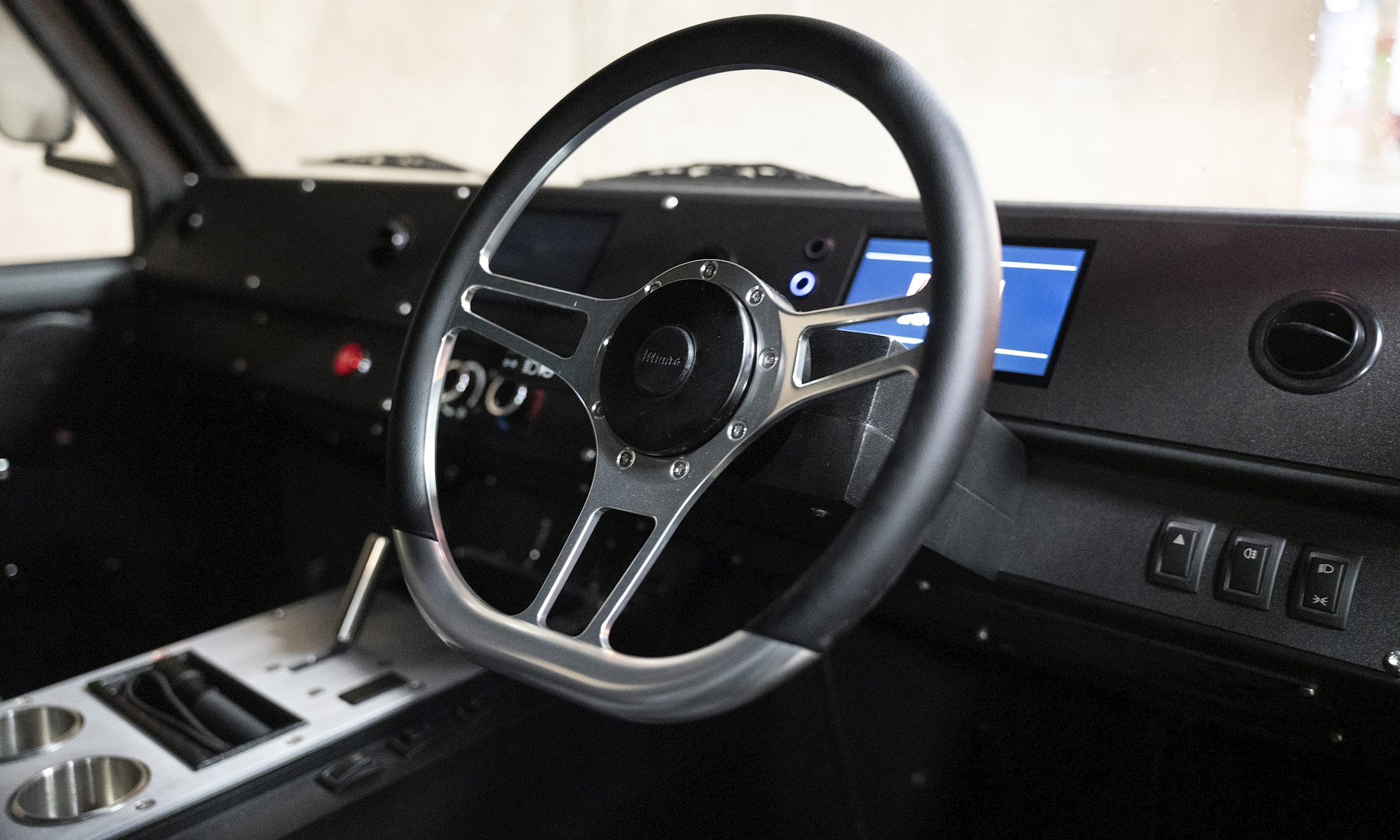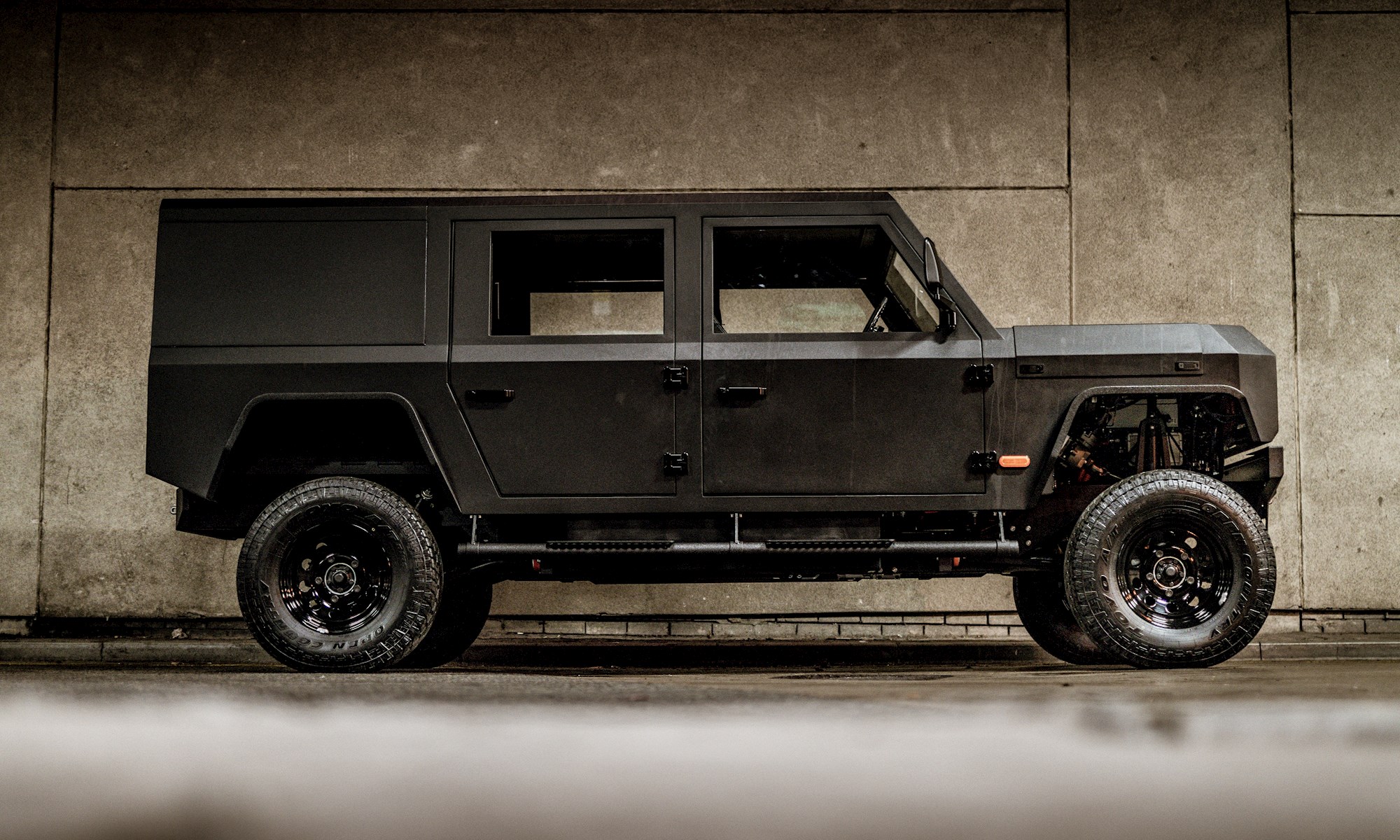Move over Tesla, in your face Rivian: the ultimate pure-electric 4x4 utility vehicle might well be Scottish. The MK_1 BEV is the first production vehicle from Scotland's only "volume" carmaker, Munro. And it looks like it could take on a tank... quietly.
Munro claims the MK_1 is "the world's most capable all-electric 4x4, born off-road to navigate the most challenging terrain and operating for up to 16 hours on a single battery charge".

Founders Russell Peterson (above, right) and Ross Anderson (above, left) say they were inspired to establish the company in 2019 after an off-road camping trip in the Highlands ("Munro" is a Scottish mountain over 3000 feet high). Both owners of roadgoing EVs, they say they felt disappointed with the power delivery of the combustion-engine 4x4 they had for the trip.
"On the return journey, we stopped at a cafe in Braemar, where a bank of 50kW rapid chargers were sitting empty and unused," says Peterson. "Parked up nearby was a large group of combustion-engine safari adventure 4x4s of a type that are no longer manufactured and will have to be replaced eventually.
"It dawned on us that there was a gap in the market for an electric powered, four-wheel drive, utilitarian workhorse."
The MK_1 has a 280kW electric powertrain that uses an "axial flux" electric motor - an alternative to the radial flux technology used in most mass-market EVs. They are harder to produce and require a great deal of hand-assembly, adding to the cost, but these so-called "pancake motors" are more compact and around half the weight in the case of the MK_1.

Radial motors spin at high speed (up to 15,000rpm) and require a reduction drive, while axial motors run at 5000-8000rpm and do not. The MK_1's single motor runs through a two-speed transmission and mechanical 4WD system.
"A further benefit of the axial flux motor is that it generates exceptionally high amounts of torque in reverse," says Ross Anderson.
"In low gear, Off-Road setting, the regenerative braking is much more pronounced. This enables the vehicle to be driven in one-pedal mode and provides a highly effective hill descent function to enhance safety and performance off-road."

The single motor is small enough to be mounted between the front seats in the bulkhead. The 4WD system is mechanical, not electronic, to ensure the very best off-road performance, simplicity and ease of maintenance, says the company.
The vehicle comes with a choice of two battery packs, 61kWh or 82kWh, giving range of up to 306km. Munro guarantees 80 per cent capacity from the pack after 160,000km, and is also set up to replace or recondition the batteries when the time comes, because the vehicle is "engineered to last several decades", says Anderson.
Munro says the MK_1 is focused on utility and "unashamedly agricultural", although the fastest version can still hit 100km/h in 4.9 seconds. It has a staggering 480mm ground clearance and 84/51-degree approach and departure angles. Payload is 1000kg and it can tow 3500kg (similar to a typical one-tonne ute).

Munro says it already has orders for the MK_1, which starts at NZ$100,000, from the UK, Switzerland and Dubai - some from fleet operators in "key industries". It plans to expand into a new factory in central Scotland in 2024, initially building 250 vehicles per year, but planning to increase to 2500 by the year 2027, with the lineup including different body configurations of the MK_1.
The company says its five-year/160,000km warranty is "super flexible", because it respects its customers' right to maintain their own vehicles.
Munro is the first company to design and build cars in Scotland since Peugeot-Talbot closed its plant in 1981.










